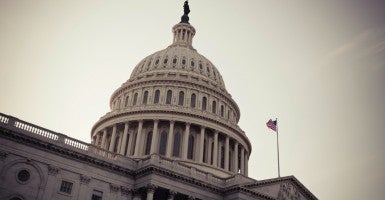The Internet is an incredibly powerful force for commerce and free expression. The same reasons that so many people value the Internet, however, lead a number of governments to fear it and seek to control it.
Since the early 1990s, when the modern Internet was born, the U.S. has sought to preserve the open, dynamic and creative nature of the Internet and used its unique oversight role over the Internet Corporation for Assigned Names and Numbers (ICANN) to do that.
The U.S. announced last year that it would like to end its oversight role, but it must not do so if that transition threatens the very aspects of the Internet that we value most.
ICANN is important because it runs the naming function of the internet under the U.S. government contract with the Department of Commerce. That’s the function that says that “heritage.org” is a server at The Heritage Foundation in Washington, D.C., and not, say, an ancestral heritage website.
In general, the naming function is not really controversial, but sometimes it is quite political – imagine what the Chinese think of “freetibet.org” or witness the fight over who owns the “amazon” domain between South American governments and the big shipping company.
ICANN’s contractual arrangement with the U.S. has had minimal direct effect over ICANN’s decisions, but the fact of U.S. oversight has restrained ICANN from extreme actions and helped insulate it from political pressure from other governments.
In March 2014, the U.S. government announced that it would relinquish its oversight role and let ICANN run on its own. Before that happens, however, the U.S. insisted that ICANN work with the Internet community to create an accountability and oversight structure that would substitute for the role currently performed by the Department of Commerce. Since that time the ICANN community has been busy building such a model, with some real success.
But one fly in the ointment still remains that might ruin the American plan to transition ICANN oversight from the U.S. to an oversight structure dominated by the private-sector: the desire of some governments (a small, but vocal minority) to use the ICANN transition as an opportunity to take control of the Internet.
To its credit the Obama administration firmly opposes this idea. Indeed, when it started the transition the U.S. stated that it would “not accept a proposal that replaces the [U.S.] role with a government-led or an inter-governmental organization solution.”
At a recent ICANN meeting in Paris, however, some of the other governments pushed back. Led by the representatives of Brazil and Argentina, and with the support of the French and the Chinese, they blocked language that would keep the current advisory role of governments unchanged.
Instead, they asserted the view that, after the transition, governments should have an “enhanced” role in running the Internet. The U.S. government representative at the Paris meeting opposed the proposal along with most of the other attendees. The Heritage Foundation, which has participated in the transition discussions, negotiations and meetings, also strongly opposed this position.
But the possibility remains that the vocal minority of governments may force ICANN to seriously consider giving them enhanced authority over ICANN decisions and, by extension, in Internet governance.
That is a red line that must not be crossed and the U.S. government should reject out of hand any transition proposal that grants governments more influence over ICANN than they currently possess.
Congress has a vital role to play in this transition. The DOTCOM Act, currently pending before the Senate would require the Obama administration to give Congress 30 legislative days to review any proposal it approves before it is implemented. In the unlikely event that politics and legacy burnishing trumped common sense and the administration approved a bad deal, Congress needs to be in a position to veto the decision.
Indeed, the prospect of congressional action has already had an enormously beneficial impact on transition deliberations allowing representatives of the multi-stakeholder community to push back against efforts to enhance government authority in ICANN and weaken accountability reforms.
If Congress fails to lock in its review of ICANN, this leverage will be lost.
Worse, Congress will exile itself to the sidelines, unable to influence or affect the administration’s decision or block it if they endorse a bad deal because the administration will be able to terminate the contract at any time.
By mandating a period of congressional review, Congress will enable itself to reject a bad deal. And that, in the end, is vital. The wrong result could give more authority to authoritarian countries and others that see the Internet as a resource to be controlled for government purposes.
The right way forward is for the ICANN community to continue to oppose governmental control; for the Department of Commerce to make clear its opposition to any proposal that might result in an “enhanced” governmental role; and for the U.S. Congress to stand as the final backstop against governmental mischief as a surety of a free and open Internet.
This op-ed has been modified.




























